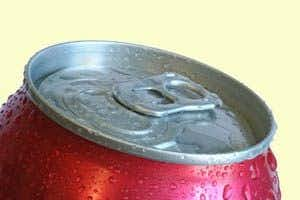
Sleeping problems are so widespread that it sometimes seems impossible to finger the culprit. But it is certainly worthwhile, since adequate sleep is a pillar of good health. One reader discovered by serendipity that the trouble was Diet Coke addiction.
Diet Coke Addiction Kept Reader Awake:
Q. I was addicted to Diet Coke for decades. I drank one 12-oz can every single day. That’s all.
I’ve had insomnia for decades as well. For the past nine years, I took Seroquel each night to be able to sleep.
Quitting Cold Turkey:
I quit Diet Coke cold turkey in June, and by August I was able to sleep without Seroquel. I could even take an afternoon nap, which was never possible before.
I’ve now been sleeping naturally without medication for six weeks. I always assumed my insomnia was a result of bad brain chemistry, but perhaps it was due to caffeine at lunchtime. Have you heard any similar stories?
Caffeine Sensitivity Doesn’t Mix Well with Diet Coke Addiction:
A. You might be especially sensitive to caffeine, explaining why a lunchtime soft drink would affect your nighttime sleep. While some people can enjoy coffee or other caffeinated beverages at lunchtime without consequences at bedtime, others can not.
You may be among the individuals who metabolize caffeine slowly. Caffeine can make it harder to get to sleep and may interfere with sleep quality (Sleep Medicine Reviews, online Jan. 30, 2016).
It was smart of you to figure out that you wouldn’t need medication for sleeping once you stopped consuming caffeinated beverages. Quetiapine (Seroquel) is approved for treating serious psychiatric conditions, not insomnia. It has a number of potentially dangerous side effects.
Better Bedtime Beverages:
In our Guide to Getting a Good Night’s Sleep, we discuss a number of herbal teas (chamomile, hops, passionflower, sage or valerian) that appear to promote sleep rather than disrupt it. Lemon balm and catnip can also be calming. Of course, for those who are not lactose intolerant, a cup of warm milk with a bit of honey is a time-honored remedy to help people slip into slumber.
Other natural approaches that may be useful include magnesium supplements, from 200 to 500 mg, depending on individual tolerance. Melatonin can help shift workers and those struggling with jet lag. But avoiding the midday caffeine, as you have done, is probably the best place to start in moving towards better sleep.

